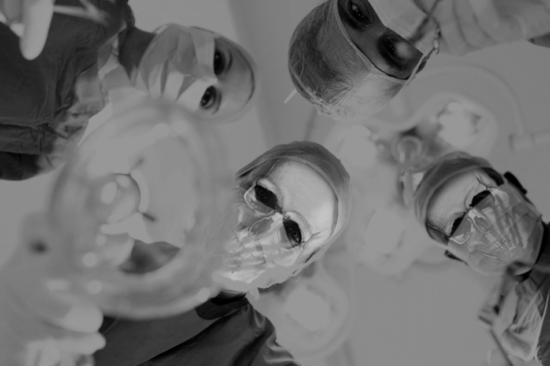Dog-petting goodness, you’re never too young for omega-3, health records set free, and more
07 Oct 2022
Posted by Andrew Kantor
Don’t let me hear you complain later
Just more than half of Americans — 51% — say they won’t get a flu shot this year. The biggest reasons? They think it won’t work, of they’re afraid of brief soreness, swelling, or headache. But almost 70 % say they know it’s the best way to prevent the flu.
About 28,000 Americans died from the flu in the 2018–19 flu season (the last before Covid), and 380,000 were hospitalized.
It’s time for part 2 of our October Pharmacy Tales from the Crypt!
GPhA continues our fun and creepy October CE courses next week — Wednesday, October 12 from 7:30 – 8:30 pm — so there’s still time to sign up!

In 1842, UGA grad (and Georgia native) Crawford Long became the first physician to cut into a patient under anesthesia. Good news for the patient, but bad news for a lot of Civil War soldiers: Long didn’t publish his findings. Learn the details of his life and his battle for recognition … and get an hour of CE, too.
This live Zoom webinar is just $15.99 for GPhA members; $19.99 for nonmembers. A bargain at twice the price!
New drug fights neverending cough
Today’s “game-changer” is … gefapixant, a P2X3 receptor antagonist; it could be the first drug in 50 years to be approved for chronic cough. It’s done well in a clinical trial — “a 60% reduction in cough frequency” according to the Brits who did the study. The Japanese and Swiss have already approved it, and the FDA is “considering” it.
A 65-year-old woman who has been coughing 45 times an hour for the past 27 years commented — in typical British understatement — “It’s not very nice coughing all the time.”
Your health records are yours now … maybe
And in typical American overstatement, Stat News compares new federal data-sharing rules to the American Revolution and D-Day.
Under federal rules taking effect Thursday [October 6, 2022], health care organizations must give patients unfettered access to their full health records in digital format. No more long delays. No more fax machines. No more exorbitant charges for printed pages.
To be sure, this is a Good Thing — after all, your records are sold for profit to all sorts of companies (‘Anonymized, we promise!’) without needing your consent. Now you at least don’t have to pay for them.
Well … assuming providers obey the law. As hospital and physicians’ groups have already complained it’s too hard and costs money, there’s no penalty for not complying, and they’re already ignoring price-transparency laws — we’re not holding our breath.
Covid keeps a-comin’
Europe is starting its next fall wave, as cases and hospitalizations are beginning to rise; deaths will follow in a a couple of weeks. Which means cases on this side of the pond will probably start to rise, too.
Will it be the dreaded flu/Covid twindemic? Another mild flu season? Or the cliché “somewhere in the middle”? Roll them bones.
GenX and millennials, start your omega-3 today
Not news: Getting plenty of omega-3 fatty acids, from cold-water fish or supplements, helps older folks’ brains.
News: Don’t wait till you’re old. A study out of the University of Texas, Boston U, and a few other places found that getting those omega-3s in middle age helps you later.
The new contribution here is that, even at younger ages, if you have a diet that includes some omega-3 fatty acids, you are already protecting your brain for most of the indicators of brain aging that we see at middle age.
They still don’t know why it works, so, as always, “More studies are needed.”
Get swishing
“Mouthwashes may suppress SARS-CoV-2”. Interestingly, it isn’t alcohol Japanese scientists tested, it’s cetylpyridinium chloride, a common antiseptic. Either way, low levels were enough to kill the virus … after 10 minutes.
The benefits of petting
Petting a dog is literally good for your brain — it engages your prefrontal cortex, which helps regulate emotions. But get this: Not only does the effect last after Fido is taken away, it even works with stuffed* animals (although not quite as well).
This is just basic research, but the Swiss researchers who did the study hope it could lead to treatments for various psychological issues or “socioemotional deficits.”
[A] better understanding of the associated brain activity could help clinicians design improved systems for animal-assisted therapy. The prefrontal cortex might be particularly relevant because it helps regulate and process social and emotional interactions.
Fun Swiss pet fact: It’s illegal in Switzerland to own one guinea pig. In fact, there are guinea pig rental services available if one of your pair dies. Really.
* In the plushie sense, not the taxidermy sense … I think.

Emotionally stable, clearly



